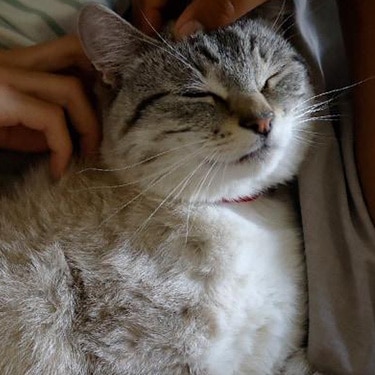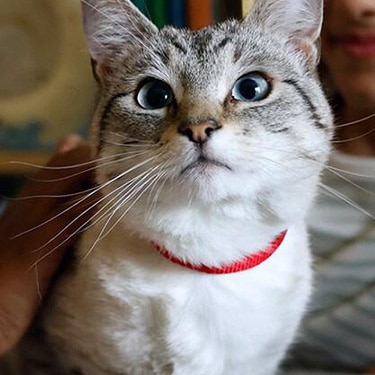
-
Find the right food for your petTake this quiz to see which food may be the best for your furry friend.Find the right food for your petTake this quiz to see which food may be the best for your furry friend.Featured products
 Perfect Digestion Large Breed Puppy Food
Perfect Digestion Large Breed Puppy FoodPrecisely balanced nutrition with Hill's ActivBiome+ prebiotic blend actively contributes to supporting digestive health and overall well-being to help your pet feel their best
Shop Now Perfect Digestion Small & Mini Adult Dog Food
Perfect Digestion Small & Mini Adult Dog FoodHill's Science Plan Perfect Digestion Small & Mini Breed Adult Dog Food with Chicken & Brown Rice supports ultimate digestive well-being & a healthy microbiome.
Shop Now Small & Mini Mature Adult 7+ Dog Food
Small & Mini Mature Adult 7+ Dog FoodHill's Science Plan Small & Mini Breed Mature Adult Dog Food with Chicken is a complete pet food, specially formulated with ActivBiome+ Multi-Benefit Technology.
Tailored nutrition to support graceful ageing in small dogs. Specially made with a synergistic blend of nutrients for energy & vigor.Shop NowFeatured products Hairball & Perfect Coat Adult Cat Food
Hairball & Perfect Coat Adult Cat FoodHill's Science Plan HAIRBALL & PERFECT COAT Adult cat food with Chicken is specially formulated to effectively help avoid hairball formation in adult cats while promoting a beautiful coat. Thanks to its mix of essential Omega-6 fatty acids, this food benefits the cat's skin and fur keeping them healthy and shiny. Our Advanced Fibre Technology helps reduce hairballs by naturally promoting their passage through the gut. This food is formulated with high-quality protein for a perfectly balanced, great-tasting recipe.
Shop Now Hypoallergenic Dry Cat Food
Hypoallergenic Dry Cat FoodHILL'S SCIENCE PLAN Hypoallergenic Adult cat food with egg & insect protein is a complete pet food for adult cat 1–6 years old. It's formulated for cats with delicate skin and stomach, with limited high quality novel protein sources & no grain.
Shop Now Kitten Food
Kitten FoodHill's Science Plan Kitten Wet Cat Food Premium Chunks in Sauce with Chicken is a complete pet food for kittens and for pregnant or nursing cats
Shop Now -
Dog
- Dog Tips & Articles
-
Health Category
- Weight
- Food & Environmental Sensitivities
- Urinary
- Digestive
- Joint
- Kidney
-
Life Stage
- Puppy Nutrition
- Adult Nutrition
- Senior Nutrition
Cat- Cat Tips & Articles
-
Health Category
- Weight
- Skin & Food Sensitivities
- Urinary
- Digestive
- Kidney
-
Life Stage
- Kitten Nutrition
- Adult Nutrition
Featured articles The Right Diet For Your Pet
The Right Diet For Your PetLearn what to look for in healthy pet food & nutrition, including ingredients, quality of the manufacturer, your pet's age, and any special needs they have
Read More Pet Food Storage Tips
Pet Food Storage TipsWhere you store your cat and dog food can make a big difference in the quality and freshness once it is opened. Here are some common questions and recommendations for optimal storage for all of Hill’s dry and canned cat and dog food.
Read More Understanding Your Pet's Microbiome
Understanding Your Pet's MicrobiomeLearn what a pet's microbiome is, how it contributes to your pet's gut & overall health, and why nutrition is important in maintaining healthy microbiomes.
Read More -


When you share a home with a feline friend, you hear many different cat sounds throughout the day. And although the meaning of some noises is easily discernible (circling her food dish while looking up at you, for example), it's not always that obvious. In some cases you may be the pet parent of a particularly chatty kitty. This is especially true with older furry friends, as cats become more vocal as they age or their hearing worsens.
Here's what she is expressing with the following distinctive cat sounds:
1. Meow
As a pet parent you already know your cat emits a classic meow for a variety of things. But cats don't do this between each other, so what is she trying to tell you? She may use her meow for a food or water refill, greet you when you return home, or request a soothing pet or tummy rub (she'll roll over for that one). Cats also speak to you with different kinds of meows depending on the situation, such as "I want that spot on the couch"–something they always seem to want.
Although incessant meowing when eating, using the litter box, or a similarly odd time could mean she's not feeling well, your furbaby is usually just coming over to say hi.
2. Purr
Life doesn't get much better than when your cat snuggles up to you, nuzzling and purring at the end of a long day. As Trupanion notes, purring is how kittens who are born blind and deaf communicate with their mom, but all cats use this method throughout their lives–even with you. Pay close attention to your own cat's purrs and you'll notice subtle changes in tone and vibration, all of which help her express that she's happy and doing just fine.
A lesser-known motive: Cats may also use this vocalization to comfort themselves when they're scared, so be sure to give your furbaby lots of love when you hear her little motor running.


Tasty Tips
3. Hiss
When a cat hisses and or even growls, it's not because she's being mean; she's frightened and therefore defensive. Your pet may hiss at a stranger who visits your home (or, for that matter, someone she knows but just doesn't like) or even at another cat as a warning to "back off." Ultimately she's reminding everyone who the real boss is (hint: It's not you).
"If you can," advises Animal Planet, "ignore the hissing instead of yelling or staring down your cat." Just allow time and your inherent affection for her to resurface, and the hissing will dissipate. Giving her the space she needs to calm her nerves will always help her feel more secure.
4. Howl
If you think howling is just for dogs, think again! The American Society for the Prevention of Cruelty to Animals (ASPCA) points out that "some breeds of cats, notably the Siamese, are prone to excessive meowing and yowling," so you may just have a loud little girl. Any cat who is "reproductively intact" will howl to attract a mate as well.
If your cat doesn't fit these criteria, she may howl because she's in an emergency situation, perhaps trapped somewhere or even injured. In other scenarios, cats howl because they want you to come right now to see the prey they brought you (and it's not always a toy). In any case, give your vocal housemate your immediate attention to ensure everything is alright.
5. Chirp
This is one of the odder cat noises reserved for very special occasions. Oftentimes your cat will chirp, or trill, to alert the household when she sees a bird, squirrel, or bunny outside the window. It's not a full-length meow but rather a command kittens learn at a young age, according The Humane Society, when their mom uses the sound to keep her babies in line. If you have more than one cat, you may also hear them converse with one another the same way. She'll eventually use this trick on you to lead you to her food dish or herd you to bed.
Paying close attention to these cat sounds will create an even more meaningful bond between you and your best pal. It will also help you better understand her needs so you can provide her with everything she needs to feel happy, healthy, and safe.


Christine O'Brien is a writer, mom, and long-time cat parent whose two Russian Blues rule the house. Her work also appears in Care.com, What to Expect, and Fit Pregnancy, where she writes about pets, pregnancy, and family life. Find and follow her on Instagram and Twitter @brovelliobrien.
Related products

Hill's Science Plan Kitten Wet Cat Food Premium Chunks in Sauce with Chicken is a complete pet food for kittens and for pregnant or nursing cats

Hill's Science Plan Adult Cat Food with Chicken is a complete pet food, specially formulated with ActivBiome+ Multi-Benefit Technology.
This food is specially formulated to fuel the energy needs of cats during the prime of their life.

Hill's Science Plan HAIRBALL & PERFECT COAT Adult cat food with Chicken is specially formulated to effectively help avoid hairball formation in adult cats while promoting a beautiful coat. Thanks to its mix of essential Omega-6 fatty acids, this food benefits the cat's skin and fur keeping them healthy and shiny. Our Advanced Fibre Technology helps reduce hairballs by naturally promoting their passage through the gut. This food is formulated with high-quality protein for a perfectly balanced, great-tasting recipe.

HILL'S SCIENCE PLAN Hypoallergenic Adult cat food with egg & insect protein is a complete pet food for adult cat 1–6 years old. It's formulated for cats with delicate skin and stomach, with limited high quality novel protein sources & no grain.
Related articles

When learning how to train your cat, you'll start with very basic first steps that both reward good behavior and discourage the bad.

Find out about how you can support your cat's digestion to boost overall health. Diet is key to a long and happy life for your cat, so discover what you can do.

Discover what you can do to spot and support a sensitive cat stomach. See what routines and food you can implement to help your cat be happy and healthy.

Discover which cat toys games your feline friend might like, and how they are great sources of exercise. Explore our library of articles to learn more.

Put your cat on a diet without them knowing
Our low calorie formula helps you control your cat's weight. It's packed with high-quality protein for building lean muscles, and made with purposeful ingredients for a flavorful, nutritious meal. Clinically proven antioxidants, Vitamin C+E, help promote a healthy immune system.
Put your cat on a diet without them knowing
Our low calorie formula helps you control your cat's weight. It's packed with high-quality protein for building lean muscles, and made with purposeful ingredients for a flavorful, nutritious meal. Clinically proven antioxidants, Vitamin C+E, help promote a healthy immune system.

